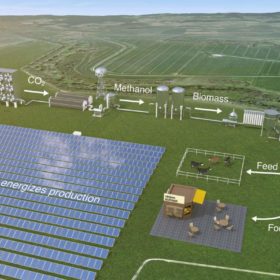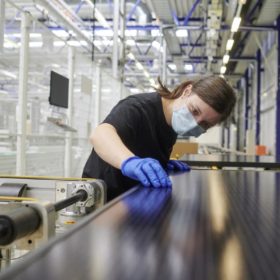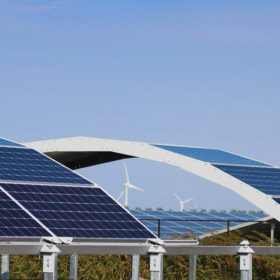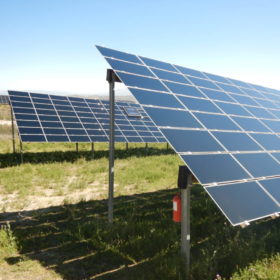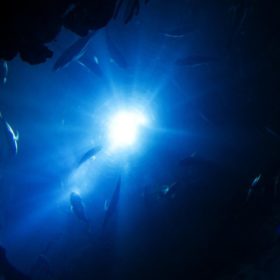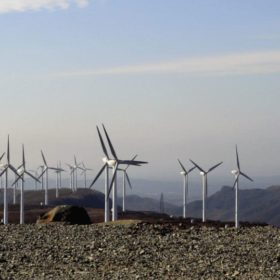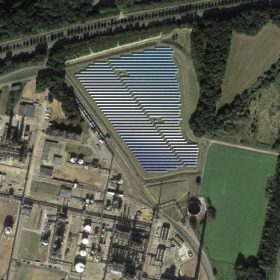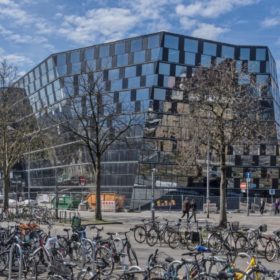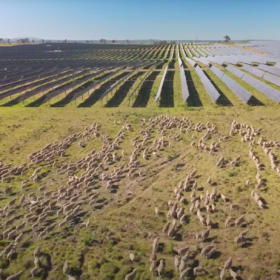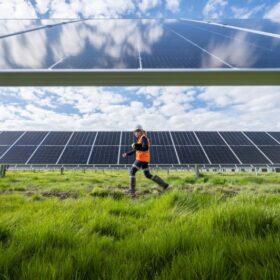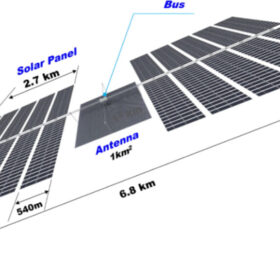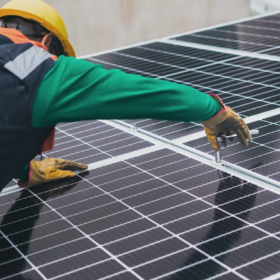Solar-powered large scale microbial food production
Producing nutrient-rich microbes with solar PV has the potential to produce more food with fewer resources, according to a German research group that modelled the large-scale production of microbial biomass by combining ground-mounted photovoltaics, air, water, and nutrients.
Meyer Burger plans to launch solar PV roof tiles in 2022
The Swiss group has acquired an integrated solar roof system solution from an unidentified German engineering service provider for this purpose. The aim is grow this sector from a niche market.
Arc-shaped PV system for agrivoltaics from Germany
The PV mounting system was developed by Germany-based Goldbeck and will initially be available in the Netherlands from 2022. The company will test the new technology in a 45 MW PV project.
German start-up offers 5.2 kWh AC battery that works without inverter
Sax Power has developed a new residential battery which it describes as a game-changer in the battery technology.
When does revamping pay off?
With projects in many PV markets ageing past the 10-year mark – with major leaps in technology having occurred in that time – revamping is a popular topic among asset owners. Pv magazine spoke with Asier Ukar, general manager of the Spanish subsidiary of German testing company PI Berlin, to uncover the benefits of revamping PV projects with new components and also to examine the challenges and risks involved.
Using the oceans’ depths to store renewables, compress hydrogen
Underwater gravity energy storage has been proposed as an ideal solution for weekly energy storage, by an international group of scientists. The novel technology is considered an alternative to pumped-hydro storage for coasts and islands without mountains that are located close to deep waters, and may also be interesting for PV if used to store green hydrogen.
CO2 pricing may prevent cannibalisation effect of wind and solar
Conventional incentives such as renewable portfolio standards, feed-in tariffs or feed-in premium payments may lead to a price cannibalisation scenario for wind and solar, according to a new study from a German-Swedish research group. CO2 pricing is, however, considered an efficient tool to maintain their market value high enough to ensure new investments. A total system cost approach, rather than an LCOE perspective, is needed to understand the strong dependence of market value on policy choice though.
Saturday read: Politicians tend to overpromise, except when it comes to solar
The speed of all transitions is inherently underestimated, and solar PV is no exception. The EU has grossly underestimated its coming of age, as its forecasts for 2020 were off by 67% for the Netherlands and 74% for Germany, writes Rolf Heynen, CEO of Dutch New Energy Research.
Investigating all-manganese flow batteries
Scientists in Germany fabricated an all-manganese flow battery, which they say serves as a proof of concept for the potential of such devices. Their results working with various battery configurations show that cheap, abundant manganese has plenty of potential for flow battery applications; and is worthy of further investigation in the frame of developing sustainable energy storage technologies.
New process to recycle silicon, silver and glass from end-of-life PV panels
A €4.8 million (AU$7.5 million) EU-funded research project is aiming to develop a process that allows recovering all components of a photovoltaic module.
